Good Housekeeping Magazine: Woe, Budget!
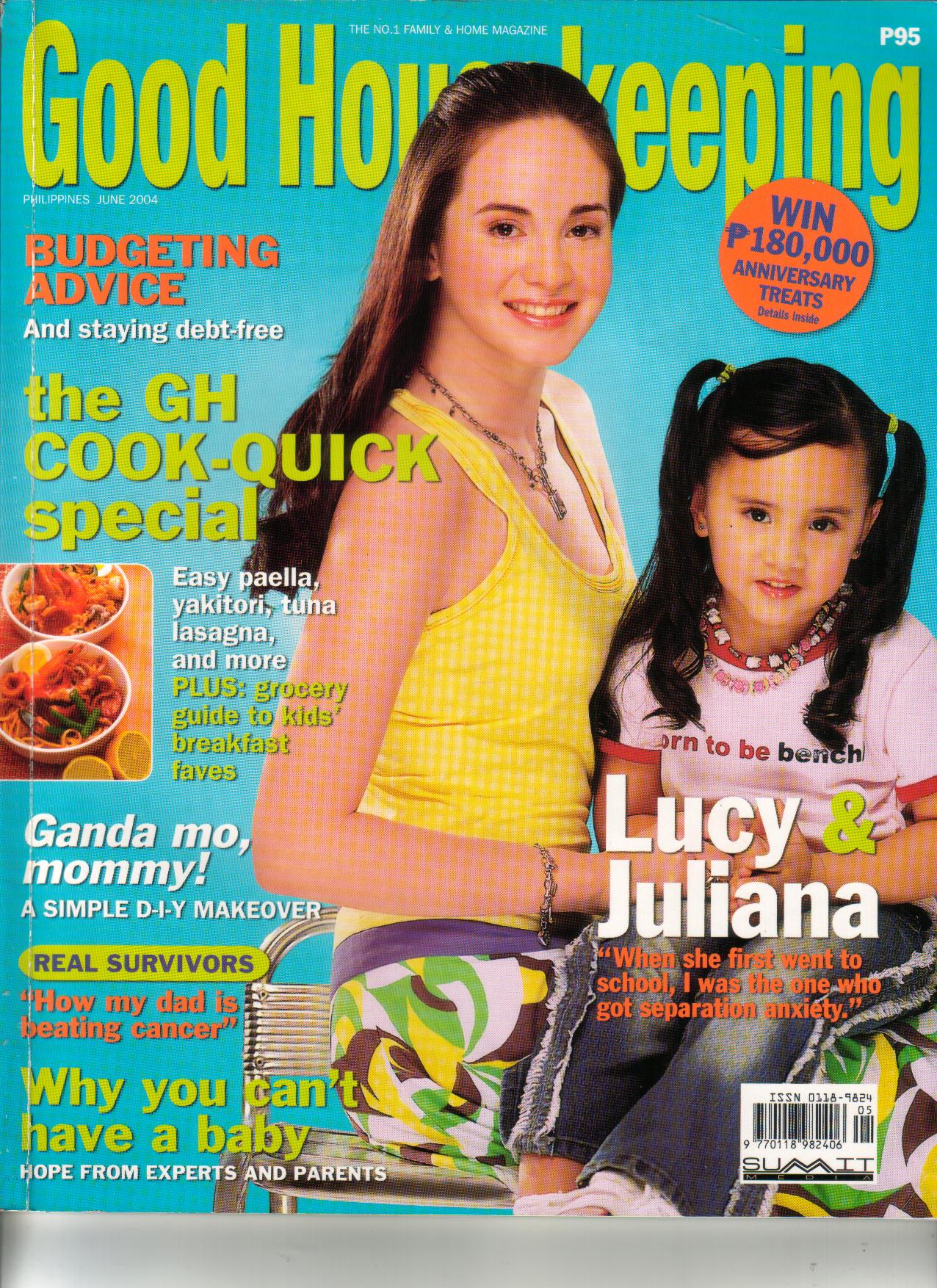
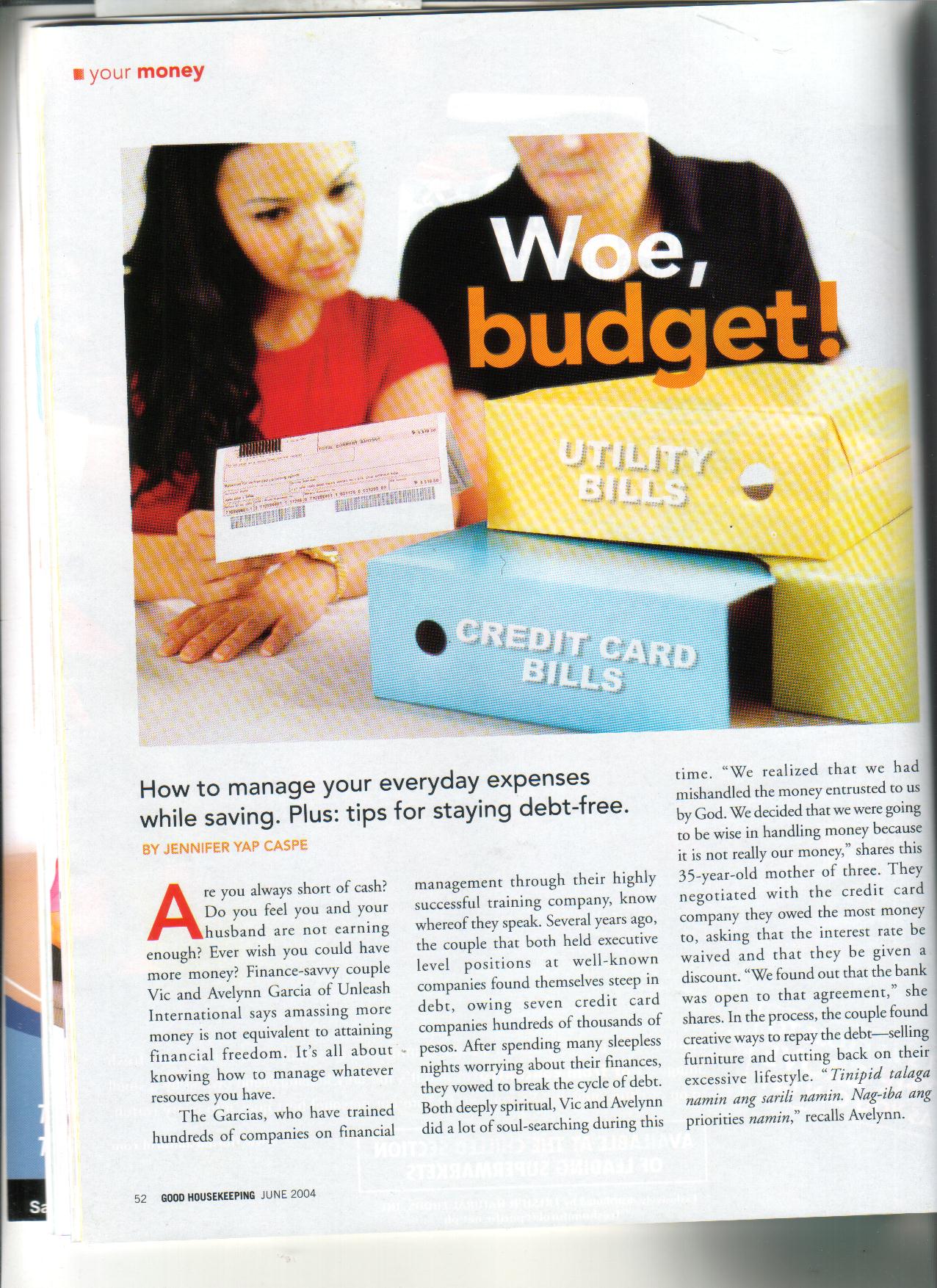
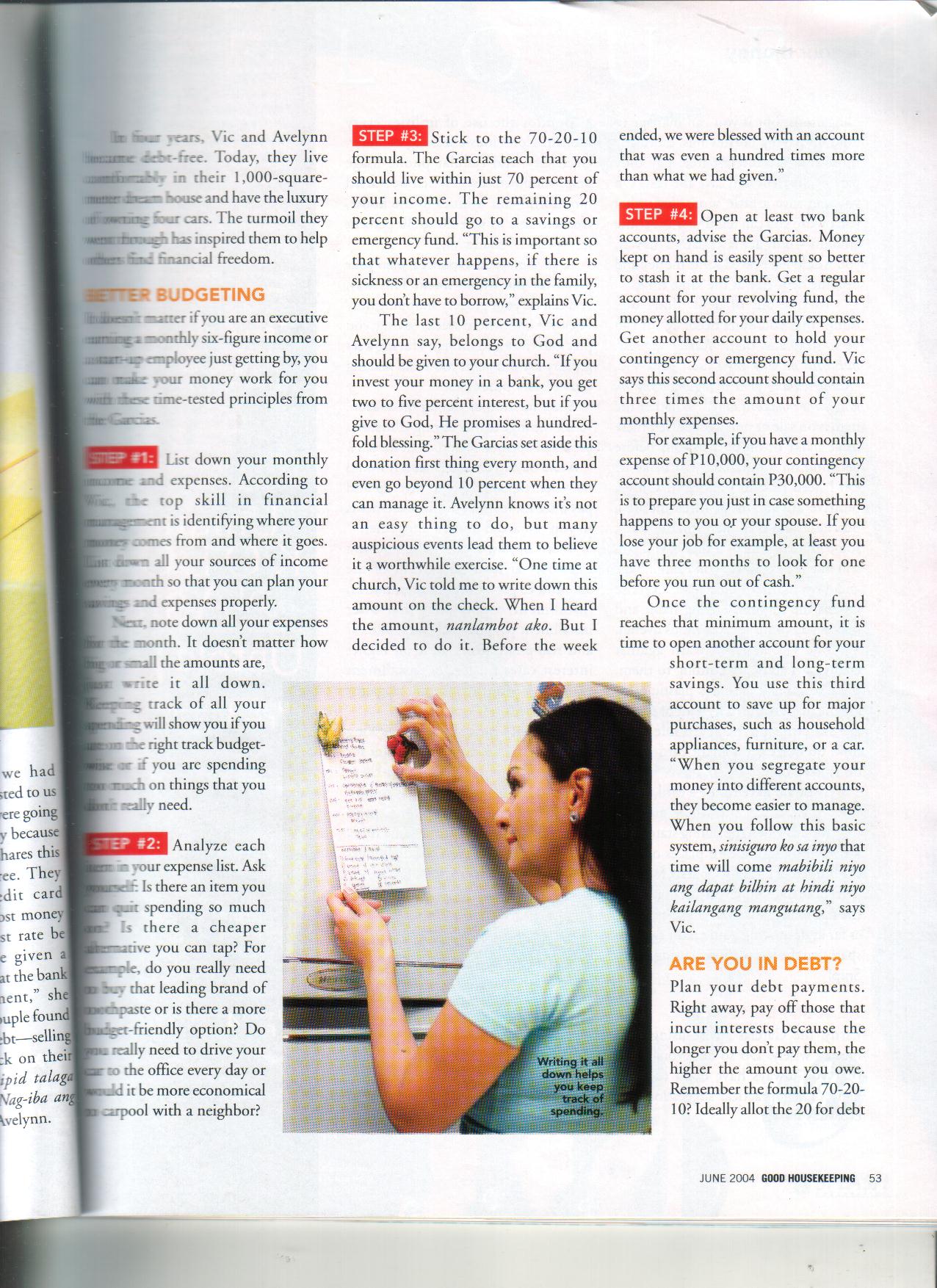
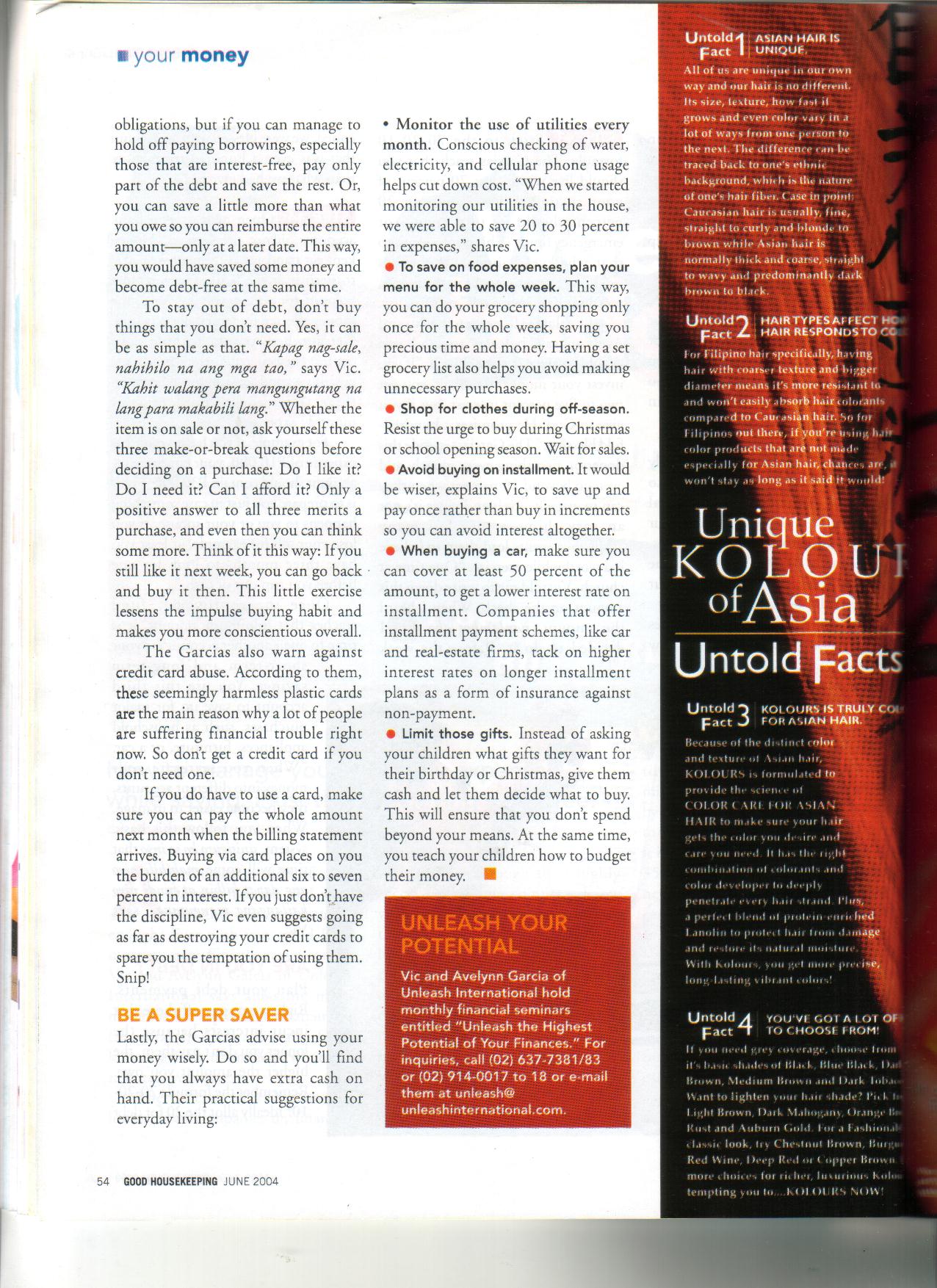 How to Manage Your Everyday Expenses While Saving
How to Manage Your Everyday Expenses While Saving
Are you always short of cash? Do you feel you are not earning enough? Ever wish you could make more money? Finance-savvy couple Vic and Avelynn Garcia of Unleash International says amassing more money is not equivalent to attaining financial freedom. It’s all about knowing how to manage whatever resources you have.
The Garcias, who have trained hundreds of companies on financial management through their highly successful training company, know whereof they speak. Several years ago, the couple that both held executive-level positions at well-known companies found themselves steep in debt, owing seven credit card companies hundreds of thousands of pesos. After spending many sleepless nights worrying about their finances, they vowed to break the cycle of debt. Both deeply spiritual, Vic and Avelynn did a lot of soul-searching during this time. “We realized that we had mishandled the money entrusted to us by God. We decided that we were going to be wise in handling money because it is not r eally our money,” shares this 35-year-old mother of three.
They negotiated with the credit card company that they owed the most money to, asking that the interest rate be waived and that they be given a discount. “We found out that the bank was open to that agreement,” she shares. In the process, the couple found creative ways to repay the debt–selling furniture and cutting back on their excessive lifestyle. “Tinipid naming ang sarili namin. Nag-iba ang priorities namin, (We changed our priorities and learned to save)” recalls Avelynn.
Photo: Money! Money! Money!
In four years, Vic and Avelynn became debt-free. Today, they live comfortably in their 1,000 square-meter dream house and have the luxury of owning four cars. The turmoil they went through has inspired them to help others find financial freedom.
It doesn’t matter if you are an executive earning a monthly six-figure income or a start-up employee just getting by. You can make your money work for you with these time-tested principles from the Garcias.
Step # 1 List down your monthly income and expenses. According to Vic, the top skill in financial management is identifying where your money comes from and where it goes. List down all your sources of income every month so that you can plan your savings and expenses properly. Next, note down all your expenses for the month. It doesn’t matter how big or small the amounts are, just write it all down. Kepping track of all your spending will show you if you are on the right track budget-wise of if you are spending too much on things that you don’t really need.
Step #2 Analyze each item in your expense list. Ask yourself: Is there a cheaper alternative you can tap? For example, do you really need to buy that leading brand of toothpaste or is there a more budget-friendly option? Do you really need to drive your car to the office everyday or would it be more economical to carpool with a neighbor?
Step #3 Stick to the 70-20-10 formula. The Garcias teach that you should live within just 70% of your income. The remaining 20% should go to a savings or emergency fund. ”This is important so that whatever happens, if there is a sickness or an emergency in the family, you don’t have to borrow,” explains Vic. The last 10%, Vic and Avelynn say, belongs to God and should be given to your church. “If you invest your money in a bankm you get two to five percent interest, but if you give to God, He promises a hundred-fold blessing.” The Garcias set aside this donation first thing every month and even go beyond 10% when they can manage it. Avelynn knows it’s an easy thing to do, but many auspicious events lead them to believe it is a worthwhile exercise. “One time at church, Vic told me to write down this amount on the check. When I heard the amount, I felt weak. But I decided to do it. Before the week ended, we were blessed with an account that was even a hundred times more than what we had given.”
Step #4 Open at least two bank accounts, advise the Garcias. Money kept on hand is easily spent so better to stash it in a bank. Get a regular account for your revolving fund, the money allotted for your daily expenses. Get another account to hold your contingency or emergency fund. Vic says this second account should contain three times the amount of your monthly expenses.
For example, if you have a monthly expense of P10,000, your contingency account should contain P30,000. “This is to prepare you just in case something happens to you or your spouse. If you lose your job, for example, at least you have three months to look for one before you run out of cash.”
Once the contingency fund reaches the minimum amount, it is time to open another account for your short-term and long-term savings. You use this third account to save up for major purchases, such as household appliances, furniture, or a car. “When you segregate your money into different accounts, they become easier to manage. When you follow this basic system, I assure you that time will come that you will be able to buy what you need to buy without borrowing money,” says Vic.
–by Jennifer Yap Caspe for “Good Housekeeping Magazine” September 2004 issue

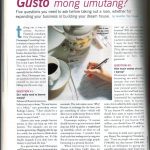



 Jenn C.
God-lover.
Milk & TV Producer.
Writer.
Entrepreneur. Natural Health Advocate.
Jenn C.
God-lover.
Milk & TV Producer.
Writer.
Entrepreneur. Natural Health Advocate.





